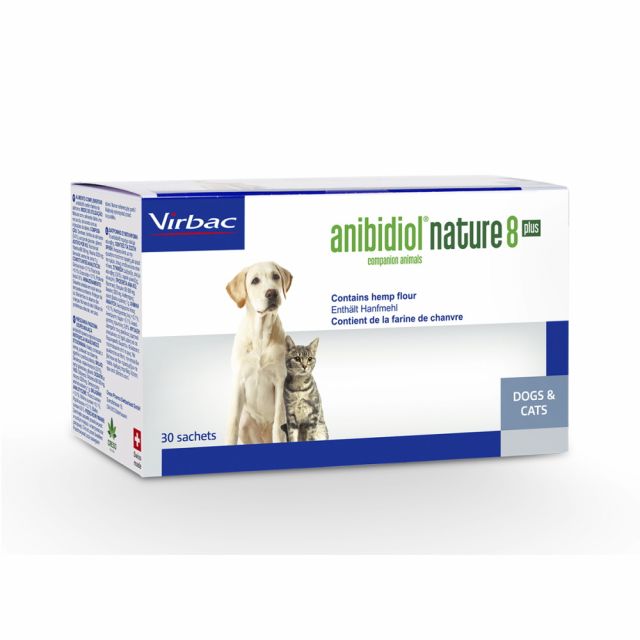Dementia in dogs
If your older dog starts behaving differently, often staring into space or walking past the house for no apparent reason, it may be suffering from dementia. Just like older people, older dogs can become demented. Dementia is incurable, but you can support your demented dog to make its old age as pleasant as possible. Pharmacy4pets is happy to help you and your old companion in this.
What is dementia?
Dementia is also known as cognitive dysfunction. It is an aging process of the brain, which changes your dog's personality. Changes occur in memory and learning ability, causing your dog to suddenly forget tricks learned earlier or the way home.
Which dogs become demented?
Dementia is most common in older dogs, usually starting from seven years of age. About half of the dogs older than eleven years show behavioral changes. In dogs older than fifteen, this is even 70%. However, dementia can occur much earlier, from the age of about four to five years old.
The cause of dementia in dogs
There are several known causes of dementia in dogs, but there is also much that we do not know. The deposition of a specific protein, amyloid, around the nerve cells in the brain, leads to the death of nerve cells. Free radicals and a deficiency of certain vitamins can also play a role in the development of dementia in dogs. In humans, toxins released during a urinary tract infection caused by the E. Coli bacteria play a role, and this seems to be the case in dogs as well.
Symptoms of dementia in dogs
Just like in humans, behavioral changes in dementia occur gradually. In the beginning, sleep problems and behavioral changes are especially noticeable. Later, dogs with dementia often become incontinent. Common symptoms include:
- Changes in day and night rhythm: sleeping during the day and walking around the house and/or barking at night.
- Less interaction with the owner or other animals.
- Sluggishness, depression.
- Defecating and/or urinating in the house.
- Confusion during walks, appearing not to know where they are.
- Change in learned behavior: not understanding tricks anymore, crossing the street suddenly, barking.
- Staring into nothingness.
Diagnosing Dementia in Dogs
A dementia diagnosis can only be made with 100% certainty by examining brain tissue. Therefore, the probable diagnosis is usually based on the symptoms and by excluding other possible causes of these symptoms.
Treating Dementia in Dogs
Unfortunately, dementia is incurable. However, adjustments in our interactions with the dog and the provision of special food, dietary supplements, and/or medication can alleviate the symptoms.
Diet and Supplements for Dementia
There are special diets that support dogs with dementia. Important additions to this diet are omega-3 fatty acids EPA and DHA, and antioxidants.
You can also give your dog EPA and DHA as supplements, in capsule form: Seraquin Omega or as a liquid variant, for example, Doils Joint (omega-3 fatty acids are also recommended for supporting the joints).
The supplements Puur Choline Extra and Anibidiol (CBD) can support the brain of your older dog.
In case of anxiety, medication can sometimes help, but it should never be the only measure taken.
Adjustments in Interacting with Your Demented Dog
For a dog with dementia, calmness and regularity are very important. Just like with people suffering from dementia, patience is necessary. Approach your dog calmly, avoid hustle and bustle, and minimize changes in the dog's immediate environment as these can increase confusion.
It's important to keep your dog physically and mentally active. Brain work helps to keep it mentally in the best possible condition. However, adjust the level of difficulty to prevent frustration. Often, adding gestures to commands can help. In cases of severe disorientation, it may be necessary to block off part of the garden or living room. For incontinence, diapers can help prevent accidents.
Like in humans, dementia is common in older dogs. Unfortunately, it is not curable. Particularly important are changes in how you interact with your demented dog. In addition, dietary supplements can support brain function.
If you have any questions about our products or about dementia in dogs, please contact us.






